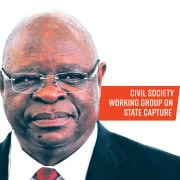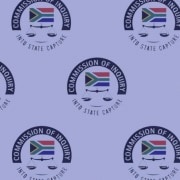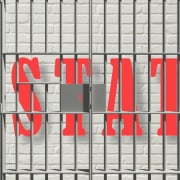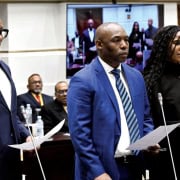|
Getting your Trinity Audio player ready...
|
By Karam Singh
First published on News24
A strong constitutional democracy based on the model chosen by South Africa requires the legislature to play a vital role, beyond passing legislation, in providing oversight and holding the executive branch accountable.
As part of the separation of powers, the legislature plays a vital democratic role in checking executive power.
Fundamentally, the South African Parliament failed dismally to exercise its constitutional responsibilities during the era of state capture.
The question, then, is what can we expect from Parliament in the future, given this critical assessment?
After four years of hearings, a petabyte of submitted documentation, and 19 volumes containing more than 350 recommendations by the Zondo Commission, Parliament came in for scathing criticism of its complicity in state capture on several fronts.
During the state capture era, the commission found Parliament abdicated its oversight responsibility, with the governing party sacrificing the overriding interests of the country in favour of narrow party-political interests.
Notably, the commission found the ANC’s posture on state capture prevented Parliament from taking meaningful action.
Only in anticipation of the impending conference and ascension of Cyril Ramaphosa as party leader in 2017 did Parliament begin to act on state capture allegations, notably holding hearings on Eskom where implicated [former public enterprises] minister Lynne Brown and the Eskom board were summoned and gave testimony – albeit testimony that was deemed unsatisfactory.
Forward momentum frustratingly slow
This past June marks a year since Chief Justice Raymond Zondo handed over his report into state capture.
He recently gave a keynote address at a symposium organised by the Human Sciences Research Council marking the first anniversary, in which he noted little has been done by way of implementing the report’s findings and recommendations.
Specifically, on the question of whether state capture could happen again, the chief justice held we have not seen sufficient progress in addressing issues identified in the report to stop it from happening again.
After a rather unfortunate and highly defensive response from Parliament to the chief justice’s critique – including questioning whether his comments, as spoken by the head of the judiciary, violated the separation of powers – Parliament has now provided a more balanced and substantive update on progress to date.
Apparently, a cordial meeting has taken place between parliamentary officials and the chief justice to clear the air.
Transparency finally forthcoming
National Assembly Speaker Nosiviwe Mapisa-Nqakula has held a media briefing where she is reported as saying “[of] 19 recommendations relating specifically to the work of Parliament, 11 have been implemented, and eight are underway.
“As part of the implementation plan, at least 22 relevant parliamentary committees have been assigned to oversee executive action regarding the commission’s recommendations. These committees are required to provide quarterly reports on oversight matters related to the implementation of the commission’s recommendations.”
The Speaker indicated most of the recommendations were directed towards law enforcement agencies and not the legislature.
Three MPs of the 12 implicated in the state capture report have been found guilty of violating the ethics code, including former mineral resources minister Mosebenzi Zwane. Parliament previously recommended Zwane be suspended, and he was docked five days salary for failing to declare Gupta-sponsored travel and benefits.
An additional five MPs – including the late Tina Joemat-Pettersson and Parliament’s chairperson of committees, Cedric Frolick – have been cleared, and two others remained under investigation, according to Mapisa-Nqakula.
It is important that Parliament has provided this briefing.
A corresponding briefing from the Presidency has been suggested and is expected in the weeks to come.
However, when it comes to dealing substantively with recommendations such as reform of the electoral system to a constituency-based system or the establishment of a dedicated committee to provide oversight over the Presidency, there has been little in the way of detailed progress.
On the issue of a presidential oversight committee, Parliament has decided to play for time, saying the matter will be investigated further, including a study tour to Europe to see how it is done in France and England.
This latter notion has been around for some time and institutionally seems like low-hanging fruit that could easily be implemented to allow Parliament to execute more effectively its constitutional mandate.
Institutionalising oversight
Of particular interest to those thinking about how we can future proof our democracy is the recommendation that a permanent anti-state capture commission of inquiry be established to deal with current and future allegations of ongoing state capture.
The chief justice has emphasised this recommendation can ensure continuous accountability and would replace the need to institute an additional state capture commission down the line.
Given the frustrations around the time it took for the Zondo Commission to complete its work and the slow implementation of recommendations, more attention needs to be given to this important recommendation as a mechanism which can institutionalise oversight within our governance system to impede state capture becoming embedded again in our system.
In summary, make no mistake, the issue of future proofing democracy from future state capture will be front and centre as we move towards elections in 2024.
Tough questions must be put to all political parties around how Zondo’s recommendations are comprehensively implemented, as opposed to cherry-picked or delayed for further investigation.
The commission’s ultimate legacy will be felt through comprehensive institutional reforms that protect the state from those who seek to capture it in the future and their enablers.








